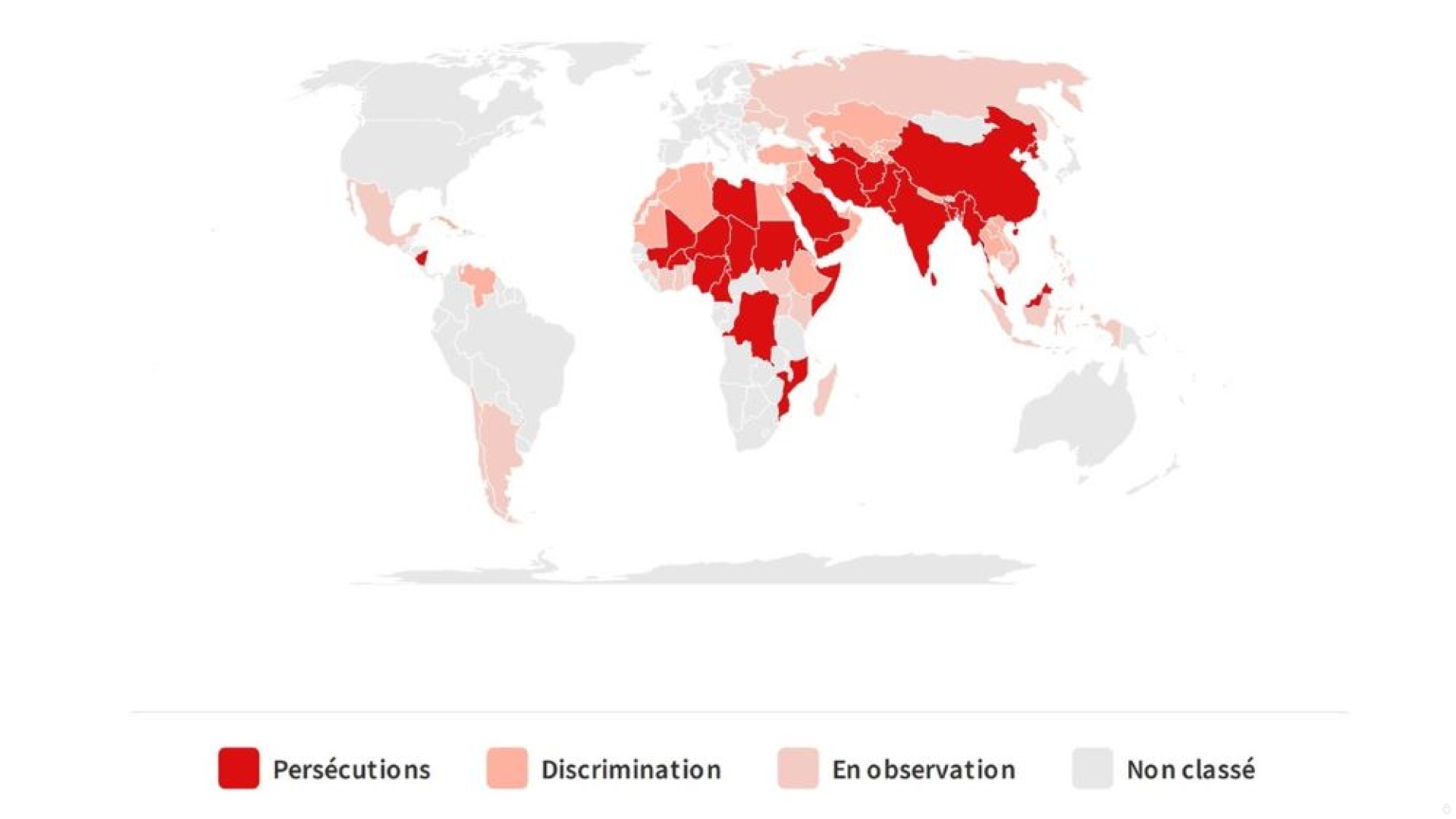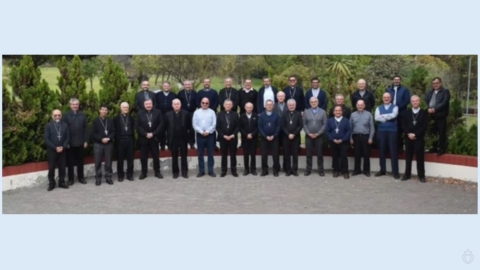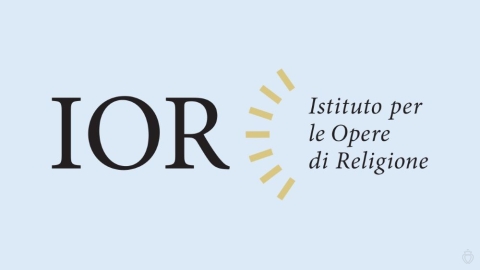Aid to the Church in Need: 2023 Religious Freedom Report

The international charitable organization of pontifical right, Aid to the Church in Need (ACN), has published the 2023 edition of its Religious Freedom Report (RFR) which shows that persecution has increased since January 2021, while impunity remains the rule for aggressors, especially for oppressive governments.
The RFR has been published by the ACN every two years since 1999. The 2023 report reveals that 61 countries completely or severely limit religious freedom – one in three countries in the world: 62% of humanity lives in countries where religion is persecuted. In 47 of these countries the situation has worsened since the last report, while only 9 showed signs of improvement.
This situation particularly affects religious minorities who, in some cases, are threatened with extinction, as various factors – terrorism, cultural suppression, financial discrimination, and legal restrictions – contribute to creating a poisonous atmosphere. There are also cases where persecution affects majority religious groups, such as in Nigeria or Nicaragua.
The culprits of religious freedom violations may be armed terrorist groups or authoritarian governments, but the rule remains one of impunity for the aggressors who are rarely, if ever, brought to justice or criticized by the international community.
Half of the countries with the toughest restrictions on religious freedom are in Africa, where an increase in jihadist activity, especially in the Sahel region, continues to cause serious concern.
But Asia, where China continues to try to exert totalitarian control over all areas of society, including religion, and India, where state-sponsored ethno-religious nationalism manifests itself in the form of severe anti-conversion laws, is also a continent of concern.
Finally, many Western nations have shown alarming signs with the spread of the “cancel culture” and increased social and political pressure for all to conform to these ideological tendencies.
In a tense global climate, marked by the consequences of the pandemic, the war in Ukraine, military and economic concerns around the China Sea, and the rapidly rising cost of living globally, religious freedom has been violated in countries where more than 4.9 billion people live.
At the highest level, we note the existence of persecution: it includes 28 countries where 4.03 billion people live, i.e., more than half (51.6%) of the world's population. Of these 28 countries, 13 are in Africa where the situation has deteriorated sharply in many regions.
At the medium level, we note the existence of discrimination: it includes 33 countries, where nearly 853 million people live. The situation has worsened in 13 of these countries. The “under observation” category includes countries where new factors of concern have been observed that may cause a fundamental breakdown in religious freedom. At all levels, hate crimes and atrocities can occur. These incidents are the manifestation of the violation of freedom of religion. It should be noted in particular:
Increase in religious freedom violations: terrorist attacks, destruction of religious heritage, and symbols (Turkey, Syria), manipulation of the electoral system (Nigeria, Iraq), mass surveillance (China), proliferation of anti-conversion laws and financial restrictions (South East Asia and the Middle East) have increased the oppression of all religious communities.
Increasingly discreet reaction of the international community to the atrocities committed by “strategically important” autocratic regimes (China, India) with the growth of a culture of impunity. Key countries (Nigeria, Pakistan) have escaped international sanctions and other punishments after revelations of religious freedom violations against their citizens.
There has also been a rise of “opportunistic caliphates.” Transnational jihadist networks in Africa have increasingly shifted tactics from the conquest and defense of fixed territories to one-off attacks aimed at creating isolated communities (cf. Mozambique) in poorly defended rural areas (preferable) endowed with mineral resources (cf. D.R. Congo).
Kidnappings, sexual violence, and forced religious conversions continued and went largely unpunished (West Africa, Pakistan).
In the West, the “cancel culture” has evolved from (verbal) harassment of people who hold different opinions for religious reasons, to legal threats, and loss of job opportunities. People who, because of their faith, do not agree with the prevailing ideological demands have been threatened with legal sanctions.
Finally, there is the proliferation of anti-conversion legislation, and reconversion initiatives with the offer of economic advantages (Asia, North Africa).
The complete Report allows you to scrutinize each country studied. It can be found in various languages at https://acninternational.org/religious-freedom-report-religious-persecu…; with interactive maps for all the countries studied.
(Source : AED – FSSPX.Actualités)
Illustration : AED





